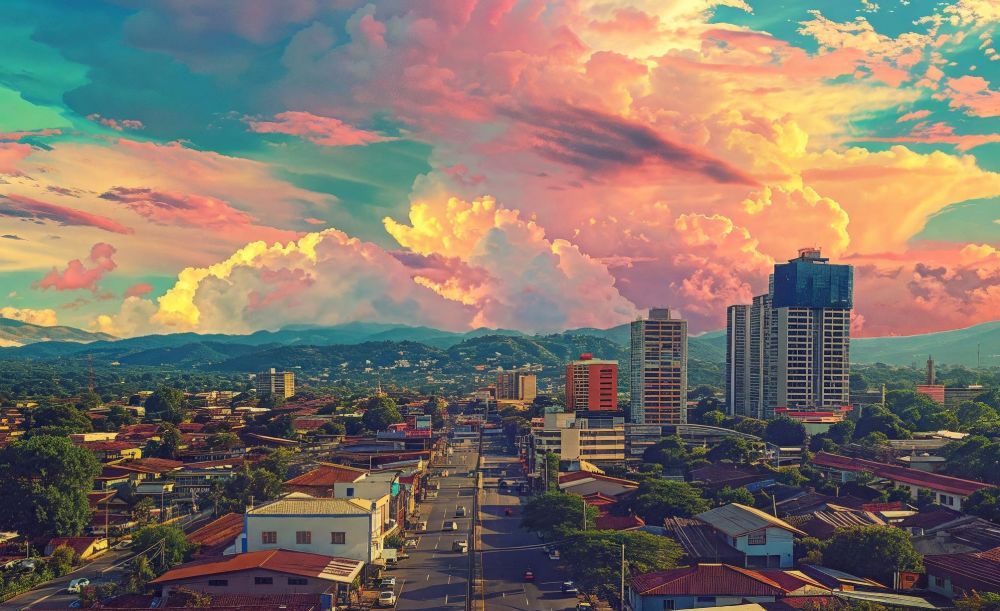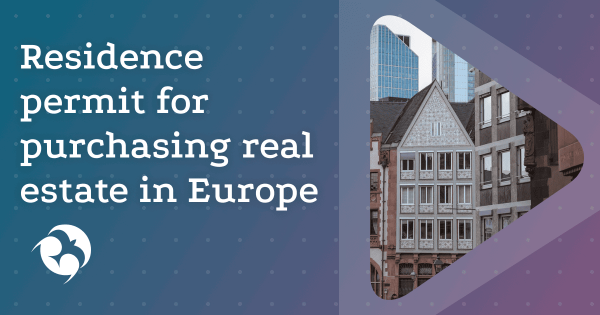Digital nomad visa has been officially in effect in the country since the summer of 2022. The immigration category estancia is open to remote professionals with an income of $3,000, including freelancers and business owners from third countries. The electronic DTV allows legal work in the country for one year, with the option to extend for another two. The nomad visa is issued after arrival in the country.
Over the past year, according to Google Trends and Yandex.Wordstat, the demand for digital nomad visas has increased by 50%, including requests for visas to Costa Rica. People arrive in Costa Rica with a foreign passport for 90 days and register through the digital platform Trámite.
Alternatively, they sometimes submit documents in person at the General Directorate of Migration. Relocators first schedule an appointment on the FECitas-VC portal in the Nómadas Digitales section, then follow a series of sequential steps according to instructions.
Specifics of the Costa Rican Freelance Visa
Public support for blockchain, virtual currencies, and digital technologies has led the government to develop these sectors and international business. To exchange experience, pura vida specialists traveling the world and working remotely are invited to the country. Typically, top-tier IT professionals apply for this type of visa. They are involved in programming, providing financial services (FinTech), developing educational programs (EdTech), and promoting products/services through social media.

- We will answer all your questions
- We will help you choose the best option
- We will guide you through every step or do everything for you
Freelancers, self-employed individuals, and business owners engaged in marketing, management, and more can apply for the estancia. They work with foreign corporate and private clients, and part of the funds earned are invested in the local economy.
In San José and other major cities, coworking spaces with high-speed Wi-Fi and communities of like-minded professionals help digital nomads integrate into the local environment. Citizens of any country can apply for this status under certain conditions.
Requirements in 2025:
- employment with a foreign company;
- providing services under client contracts abroad;
- a monthly income of $3,000.
Applicants can bring their spouses, children under 25, dependents with disabilities, elderly, and financially dependent individuals to the country. In such cases, applicants must earn at least $4,000.
What Taxes Do a Freelancer Pay
The country’s legislation only taxes income earned within the country. Dividends from foreign sources are not subject to taxes. If transactions are concluded within the country, offshore income is also not taxed. The law also applies to capital gains and inheritance income.
Tax table for digital nomads, freelancers, self-employed and sole proprietors
| Tax name | The amount of tax | Note |
| Income tax (residents) | Progressive scale: 0-35% | Applies to global income. The first 9,440,000 CRC (≈$18,000) are tax-free. For holders of a digital nomad visa, foreign income is not taxed |
| Income tax (non-residents) | 30% | Is charged only on income received from Costa Rican sources |
| VAT | 13% (standard), 0,5–4% (preferential) | The standard rate applies to most goods and services. Preferential rates: 4% (air tickets), 2% (medicines), 1% (food), 0,5% (agricultural machinery) |
| Corporate tax (sole proprietors/companies) | 30% | For companies with turnover over 119,629,000 CRC (≈ $228,000). Small businesses can use a simplified mode |
| Social contributions | 10,66% (employee), 26,33% (employer) | Mandatory for residents working under local contracts. Digital nomad visa holders are not provided |
| Tax on dividends | 15% | It is withheld from the source of payment. For residents, it is possible to offset against income tax |
How Much Does the Visa Cost
The application processing fee is $100. The state fee and a one-time nomad visa and extension fee is $90. The iVisa platform is open for payment in the country.
Required Documents and Conditions
The first step to “immigration accreditation” in Costa Rica is to fill out the official form in Spanish and submit it via the digital platform or in DGEM – the General Directorate of Immigration. Processing time is 14 days.
After approval, expats travel to the country where they undergo an interview with their documents. Mandatory documents for visa application:
- a copy of the passport page with a photo and stamp;
- 12 income statements for the previous year;
- proof of fee payment;
- fingerprints;
- proof of employment with a foreign company;
- employer consent for remote services;
- annual medical insurance.
Self-employed individuals must provide client contracts and other documents to confirm their activity. For those moving with family, marriage certificates, children’s birth certificates, and individual health insurance policies are required.
Recent Changes in Costa Rican Visa Policy
In September 2023, the government announced an extension of tourist visas from 90 to 180 days. This rule applies to passport holders from most European countries, including the U.S. and Canada. The decision was endorsed by the National Chamber of Tourism CANATUR, which had long advocated for extending the stay of foreigners to boost the country’s tourism industry and economy overall.
The General Directorate of Immigration confirmed that the new law will bring profits to hotels, tour operators, and restaurants. Authorities note that this visa category is not suitable for business trips.
Frequently Asked Questions
To confirm financial viability, you must provide a bank statement for the last year. It is necessary to demonstrate a regular income of $3,000/month from sources outside Costa Rica. To move with your family, the required income increases to $4,000.
Medical insurance is a mandatory document. The policy must cover the entire period of stay, include emergency medical care, and have a coverage amount of at least $50,000.
To confirm the status, you must provide documents proving the possibility of remote work. For employees, an employment contract with a foreign company will be required. For freelancers, contracts with foreign clients. For business owners, a certificate of company registration abroad.
All work and clients must be located outside of Costa Rica. A Nomad visa does not allow you to work with local companies and clients.
Yes, you can. Citizens of individual countries can enter the country without a visa for up to 90 days, and then apply for the status of a digital nomad. The application process in this case includes registration on the Trámite digital platform or a personal request to the General Directorate of Migration (by making an appointment through the FECitas-VC portal in the Nomadas Digitales section).
All documents submitted for obtaining a digital nomad visa in Costa Rica must be accompanied by a Spanish translation. In some cases, notarization of translations may be required.
To include family members in the digital Nomad visa application, you must:
- Increase the minimum income to $4,000 per month (instead of $3,000 for one applicant);
- Provide documents confirming family ties (marriage certificate, birth certificates of children);
- Get medical insurance for each family member.
The period of consideration of the application is from 15 to 30 days. It is recommended to submit documents 1-2 months before the planned move.
According to the general immigration rules, when registering upon arrival in the country, you must specify the address of residence. It is better to prepare a confirmation of the accommodation reservation or a rental agreement in advance.
The visa is issued for 12 months from the date of approval of the application. The deadline does not start from the date of entry, but from the moment the documents are officially approved by the migration service.
The program provides for a one-time extension for 12 months. You can stay in the country for up to 2 years in total. For an extension, you must have lived in Costa Rica for at least 180 days during the first visa period.
The standard period for processing an application is from 15 to 30 calendar days. During peak seasons (December-January, July-August), the period can extend up to 45 days.
Official sources do not provide for accelerated processing of applications. However, practice shows that a complete set of properly executed documents reduces the verification time to 10-14 business days. A certified translation into Spanish and the absence of errors in the questionnaire become a critical factor.
To successfully extend the visa, you must document your stay in the country for at least 180 days during the initial visa period. This criterion is checked by border crossing stamps and migration registration data.
The total duration of legal residence under the program is limited to 24 months (2 consecutive periods of 12 months each). After the expiration of this period, you must leave the country for at least 90 days before reapplying.
It is possible to apply for an extension no earlier than 60 days and no later than 30 days before the expiration of the current visa period. Violation of these deadlines may result in fines or refusal to extend.
The policy must cover the entire period of the requested visa + 15 additional days. For example, when applying for a 12-month period, insurance must be valid for at least 380 days from the date of intended entry.
The passport must remain valid for at least 6 months after the end of the visa period. For a 2-year stay, including an extension, the passport must be valid for more than 30 months from the date of application.
After receiving the approval notice, the applicant must enter Costa Rica within 90 days. Skipping this period cancels the visa permit.
The total cost ranges from $240 to $400 and includes:
- Government fees ($100 per application);
- Administrative fees ($90 for processing documents);
- Health insurance (from $20 to $150 monthly, depending on coverage);
- Translation of documents ($15-30 per page);
- Notarization ($50-100 per document);
- Accommodation (mandatory fee of $50 upon entry).
- Additionally, consider the costs of legal support ($200-500) and rental housing ($500-1,500/month).
The payment system is structured in 3 stages:
- Initial submission ($100 via the Tramite YA platform!);
- Application processing ($90 upon approval of the preliminary documentation);
- Registration of an ID card ($50 for a personal visit to the migration service).
The insurance policy must meet the following criteria:
- Minimum coverage ($50,000);
- Validity period (the entire visa period + 15 days);
- Cost (from $240 for an annual basic policy to $1,800 for premium coverage).
- Foreigners over the age of 60 pay 30-50% more due to increased risks.
Non-obvious costs include:
- Spanish translation ($15-30/page);
- Apostille ($20-50 per document);
- Courier delivery ($40-100 depending on the country of shipment);
- Re-submission ($50 if errors are found in the documents).
If extended after 12 months, a re-fee ($100), renewed insurance (+20% of the original cost), proof of income ($50 for a notarized statement, late payment penalty ($10/day in case of violation of the deadline) will be required. The total cost of the extension is $200-300, excluding changes in marital status.
Additional costs for each family member:
- State duty (+$50);
- Insurance ($100-200/month);
- Translation of documents (+$30-50 for certificates);
- Notary services (+$20-40 per document).
The refund policy stipulates:
- The state duty is non-refundable
- Processing fee (partial refund of 50% in case of failure at an early stage);
- Insurance: depends on the terms of the contract (usually non-refundable);
- Translation services are non-refundable.
No. This visa provides a temporary status that allows you to live and work remotely in the country for up to 1 year with the possibility of extension for another 1 year. The Digital Nomad Visa does not directly lead to citizenship or permanent residence.











